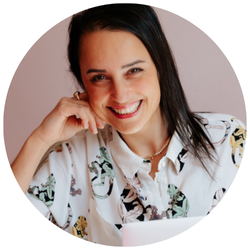Cuando pensamos en la creatividad, a menudo imaginamos una explosión de ideas fantásticas o esfuerzos artísticos.
Sin embargo, la creatividad es más bien un enfoque hacia la resolución de problemas y la innovación que es aplicable en todas las áreas de la vida.

¿Qué es exactamente la creatividad?
Como lo define Dictionary.com , la creatividad es “la capacidad de trascender las ideas tradicionales, reglas, patrones, relaciones o similares, y crear nuevas ideas, formas, métodos, interpretaciones, etc. significativas”.
A pesar de su increíble valor, los fundamentos psicológicos de la creatividad siguen siendo un misterio. Pero algo que sabemos con certeza es que es espontánea y difícil de desarrollar a demanda.
Creatividad a la carta
Esta elusividad plantea un desafío, especialmente hoy en día, cuando a menudo se espera que la creatividad siga un horario. Desafortunadamente, si bien existen actividades para fomentar la creatividad, no existe una receta definitiva.
Sin embargo, podemos hacer que la creatividad sea más manejable si la vemos como un proceso más que como una habilidad.
Podemos hacer que la creatividad sea más manejable al verla como un proceso más que como una habilidad.
En su libro Construyendo un segundo cerebro , Tiago Forte explica que si bien los productos creativos cambian con el tiempo, el proceso creativo permanece constante e involucra dos fases: divergente y convergente .
En la fase divergente , debemos mantener la mente abierta y generar tantas ideas como sea posible.
En la fase convergente , reducimos, seleccionamos y ejecutamos ideas. Esta fase es necesaria para transformar las ideas en productos o soluciones reales.
Neurológicamente, el mejor estado para generar ideas y soluciones es el modo de "ensoñación" o "divagar", el estado del cerebro en reposo, definido como la " red neuronal por defecto " por Marcus Raichle. En este estado, el cerebro, desconectado de la concentración intencional, crea nuevas conexiones y asociaciones neuronales y amplía conceptos.
Por otro lado, durante la fase convergente, cuando seleccionamos ideas para actuar, nuestro cerebro utiliza el modo de “permanecer concentrado en la tarea” ( o enfoque intencional, como se analizó en nuestro artículo anterior ) para ayudarnos a ejecutar una tarea sin distracciones.
( Aprenda cómo funciona el enfoque psicológicamente ).
Estos modos son mutuamente excluyentes, es decir, uno suprime al otro.
Neurológicamente, el mejor estado para crear ideas y soluciones es el modo de “soñar despierto” o “mente errante”, el estado del cerebro en reposo... Por otro lado, cuando seleccionamos ideas para actuar, nuestro cerebro utiliza el “modo de concentración”.
Como quizás hayas experimentado, el modo de divagación mental es crucial para la creatividad, y ocurre de forma casi impredecible, y solo cuando nos liberamos de nuestras listas de tareas. Por eso, en el ajetreado mundo actual, es importante programar intencionalmente este tiempo de divagación, o creativo.
Puede que esto parezca contradictorio, pero en el mundo actual de distracciones, debes liberarte deliberadamente de tu interminable lista de tareas pendientes para dejar que tu mente divague.
¿Cómo se ve esto? Salir a caminar o realizar actividades aburridas o repetitivas (y que no exijan mucho la mente), como limpiar o cuidar el jardín, puede aumentar las probabilidades de activar este modo. ¡O sentarse frente a tu Freewrite y dejar que tus pensamientos fluyan entre tus dedos!
En el mundo agitado de hoy, es importante programar intencionalmente este tiempo de divagación mental o creativo.
¿Por qué ves los coches amarillos?
Ambas fases del proceso creativo implican un alto nivel de concentración; sí, incluso la fase divergente.
Pero ¿cómo es posible concentrarse ( lo que sabemos que consiste en filtrar información para permanecer concentrado en la tarea) y también permanecer abierto a las posibilidades al mismo tiempo?
Podemos hacerlo gracias a la atención selectiva , el proceso que nos lleva a fijarnos en todos los coches amarillos en la calle cuando decidimos comprar uno. Cuando le decimos a nuestro cerebro que los coches amarillos son importantes o relevantes, les presta más atención, actuando como guía para nuestra mente divagando.
Entonces, si queremos mejorar nuestro proceso creativo y obtener resultados reales, debemos aplicar y practicar el enfoque en dos niveles diferentes.
Dos tipos de enfoque
Primero, concéntrate en un solo proyecto para guiar tu mente y encontrar las respuestas y pistas que buscas, para que pueda conectar y generar nuevas ideas. Incluso cuando solo estás generando ideas, es un excelente hábito concentrarse en "La Única Cosa", como lo definen Gary Keller y Jay Papasan en su libro .
A continuación, concéntrese en una sola tarea para lograrlo. Cuando Albert Einstein desapareció de la vista del público durante tres años, por ejemplo, decidió centrarse en un solo proyecto de investigación. Esto le permitió crear su revolucionaria teoría de la relatividad.
Si bien estos tipos de enfoque difieren cognitivamente, ambos son brújulas esenciales para nuestro pensamiento y ambos implican acotar los objetivos. Por eso se suele creer que muchas personas altamente creativas están obsesionadas con una sola cosa.
Es por eso que a menudo se cree que muchas personas altamente creativas están obsesionadas con una sola cosa.
No necesitas obsesionarte. Pero si le das instrucciones claras a tu cerebro mediante el enfoque adecuado, la creatividad fluirá.
--





























